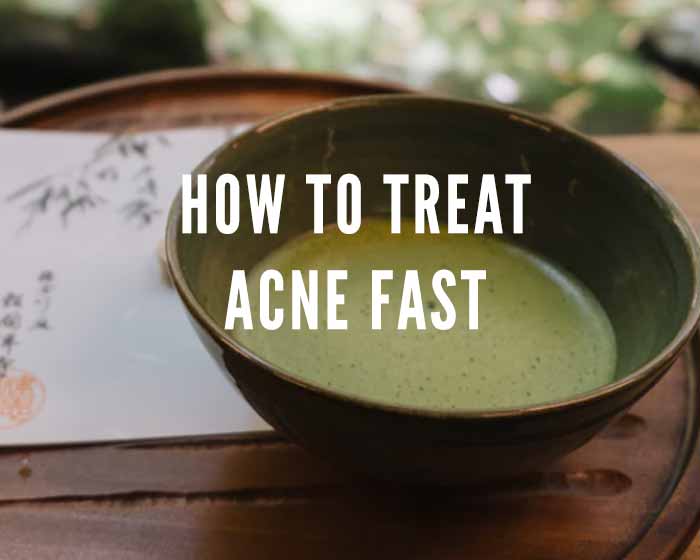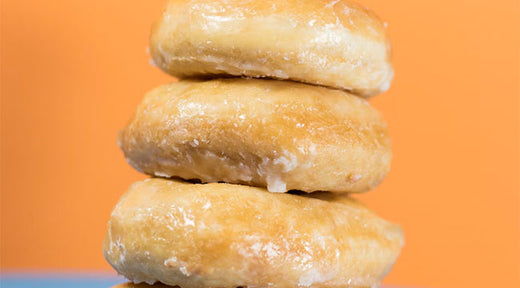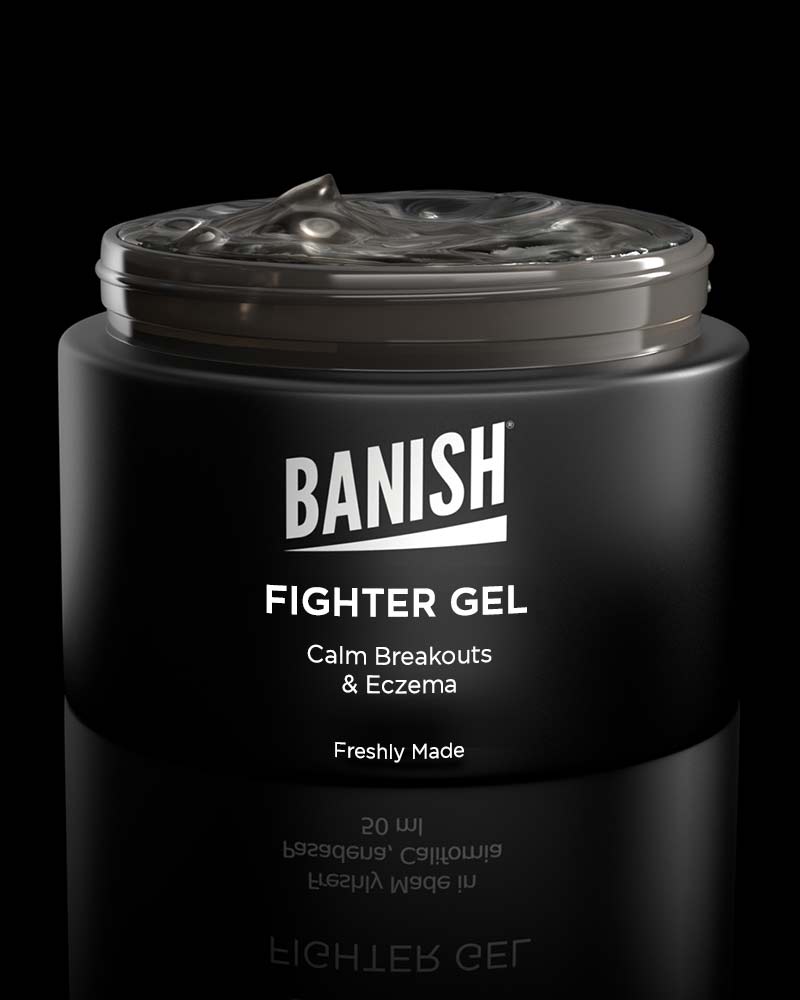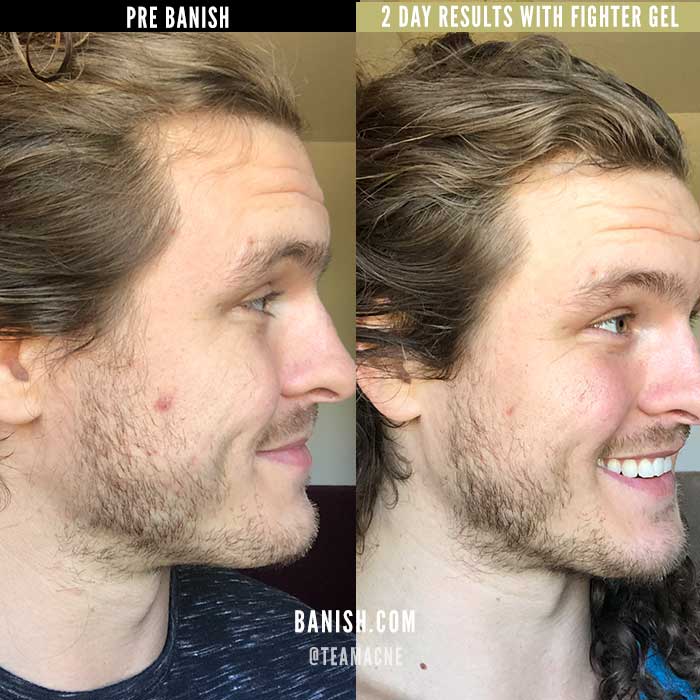Okay, so most acne cannot be completely gone overnight, that's simply not possible! BUT there are many acne treatments that can make a difference overnight, it just won't be 100% healed in only one night, realistically.
Acne can put a damper on things whether it's your first day of new classes, a date night, vacation, or job interview, having acne can add unnecessary added stress to an already stressful event.
Understand that no medication can completely remove all acne in a single day, but there are some easy tips that can treat acne overnight so it's a lot less visible and painful!
Acne breakouts are challenging to treat and even more tempting to pop. Try to avoid popping the breakouts until they've come to a complete head.
These are the top home remedies to treat acne overnight:
- Apply aloe vera
- Use an ice cube
- Green tea
- Use tea tree oil
- Apply glycolic acid
- Spot treat with sulfur
- Use benzoyl peroxide
Aloe Vera
Aloe vera is called the miracle plant for good reason. It has anti-inflammatory properties to reduce acne size, can calm redness and contains anti-bacterial properties to fight bacteria. With all these skin benefits, aloe vera is an amazing home remedy to treat acne overnight.
Being rich in antioxidants and minerals, aloe vera promotes speedy healing of acne.
To Use: Peel the aloe vera leaf. Apply the clear gel on cleansed skin, rub slightly, and leave it on. You can do this in your morning or evening skincare routine, or use aloe gel.
Ice Cubes
An Ice cube is another easy way to help treat acne overnight. Ice can reduce the inflammation, pain, and swelling of acne. The cold temperature will also help to tighten and temporarily reduce pore size. This will make the skin appear smoother.
Like any other acne treatment, it should be used on freshly cleansed skin. Wrap an ice cube in a thin facial cloth or paper towel. Place the ice cube for a minute on your pimples. If your acne is inflamed, you may apply the ice for several times a day, but with at least a 5 minutes break in between.
Green Tea
Green tea is considered one of the most effective teas for acne treatment. Green tea is great for reducing acne by stopping inflammation with its antioxidant contents and it prevents excessive sebum production.
Green tea contains many antioxidants such as epigallocatechin gallate (EGCG) that prevents sebum production. This tea also has anti-inflammatory and antibacterial properties.
To Use: Add 1 green tea bag in hot water. Let it cool and remove leaves from the bag. Mix the leaves with some honey. Apply the mixture on the acne affected area. Leave it for 10 - 20 minutes. Rinse with cool water and pat dry.
Drinking green tea is beneficial not only for acne but for overall health as well. Two cups a day is recommended, but avoid if you have a sensitivity to caffeine. Freshly brewed green tea at home is still the best option instead of the ready-made drinks as many bottled teas may contain sugars or other preservatives.
Tea Tree Oil
Tea tree oil is naturally antibacterial which makes it known as an acne spot treatment. Tea tree oil is an over-the-counter option that you can add into your regular skincare routine, as long as it is diluted. There is a study that noted a 5% concentration of tea tree oil is as effective as 5% benzoyl peroxide for mild to moderate acne which is great news if you can't use benzoyl peroxide.
Tea tree oil has healing properties that speed up wound healing and calms redness to help with acne prone skin.
Use: Tea tree oil should always be diluted before applying to the skin because if its too strong it will wreck the skin barrier and worsen acne. Dilute with a non comedogenic carrier oil such as jojoba oil or rosehip oil. Apply the mixture to cleansed skin. You can follow with your favorite light moisturizer. This is good to use twice a day in the morning and evening routine to treat acne overnight.
Glycolic Acid
Glycolic acid is one of the best acids to use to treat acne overnight. It is an AHA which means alpha hydroxy acid. Glycolic acid is one of the most effective AHA and a popular ingredient to treat acne.
When it is applied to the skin it works to break the bond between the outer layer of skin cells like dead skin cells to reveal a new layer of glowing skin underneath. It also creates a peeling effect that results in even smoother skin and can strengthen the skin through collagen production.
Glycolic acid is commonly found in chemical peels and can be used daily as long as the pH level and concentration are balanced. That's why we created the Pumpkin Enzyme Masque as it exfoliates skin with AHAs to treat and prevent acne.
Sulfur
Sulfur has antimicrobial properties that help to reduce acne. It prevents the growth of bacteria that result in acne breakouts. As an acne treatment, sulfur is always combined with another antimicrobial called sodium sulfacetamide. If the skin is sensitive even to lower concentrations of other acne treatments, sulfur is a good option.
Sulfur is used in skin care products like masks, creams, and spot treatments. Sulfur spot treatments suit oily skin types since sulfur spot treatments are usually combined with a lot of drying alcohol.
As an overnight acne spot treatment, only apply the sulfur on the affected areas.
When first using a sulfur, apply once a day and gradually increase the application to 2 times per day once the skin is used to it, or follow the directions included with the skincare product containing sulfur.
Benzoyl Peroxide
Benzoyl peroxide is a common ingredient in skin care products for acne-prone skin. Benzoyl peroxide works by killing the bacteria underneath the skin, gets rid of dead skin cells that clog the pores and even shed overproduction of sebum. Fewer bacteria means fewer breakouts
Benzoyl Peroxide is available in over-the-counter creams, gels, cleanser, and spot treatments in different concentrations. It's best to start off with the lowest concentration and work your way up. The concentration depends on the skin’s sensitivity.
Benzoyl peroxide creams at 5% or lower concentrations may be applied once or twice a day on the entire skin area and this form is recommended if you want to treat acne overnight.
Gels with benzoyl peroxide are at higher concentrations should be used for spot treatment on the affected areas only to avoid drying out skin, but it really isn't necessary or any better to use benzoyl peroxide stronger than 5% concentration.
We're confident at least one of these recommended overnight treatments for acne should work for you.
Still, everyone’s skin is different, therefore effective treatment varies as well. While these acne treatments may not relieve acne permanently, it will help to reduce the severity of the breakouts overnight.
Overall, while theses acne remedies fight acne on the surface, acne has a root cause that is usually an internal factor so focus on trying to get your root caused fixed to really put an end to recurring acne breakouts.
A patch test is always recommended when trying any new acne treatment at home even if its natural. While it is best to allow at least two-week use for a treatment to see the full effects, we know that sometimes we don't always have enough time to wait the full two weeks. Have you tried any of these acne treatments? Let us know which gave you the best results!
"The use of sulfur in dermatology"
Aditya K Gupta 1, Karyn Nicol
"A comparative study of tea-tree oil versus benzoylperoxide in the treatment of acne"
B Bassett 1, D L Pannowitz, R S Barnetson

























2 comments
BANISH
@OSOVALE FAASALA. We’re here to support you along your journey!
Osovale Faasala
Loved it! So easy and my problems is solved. Acne free! Thanks folks and God Bless
Leave a comment
All comments are moderated before being published.
This site is protected by hCaptcha and the hCaptcha Privacy Policy and Terms of Service apply.